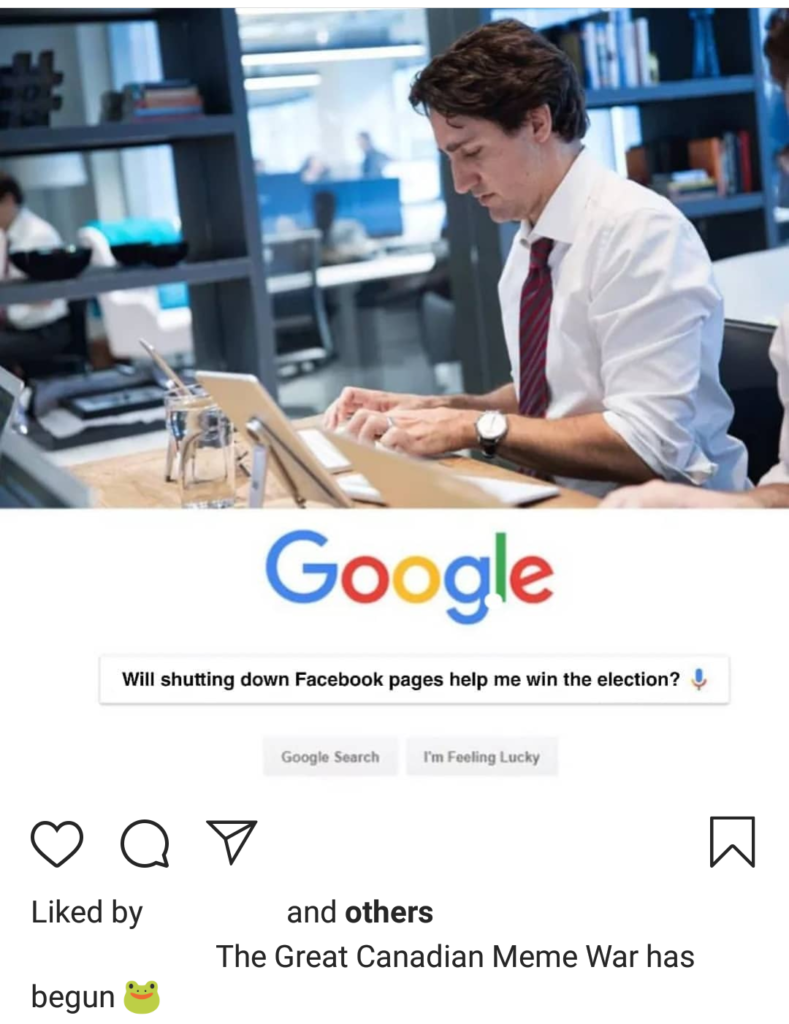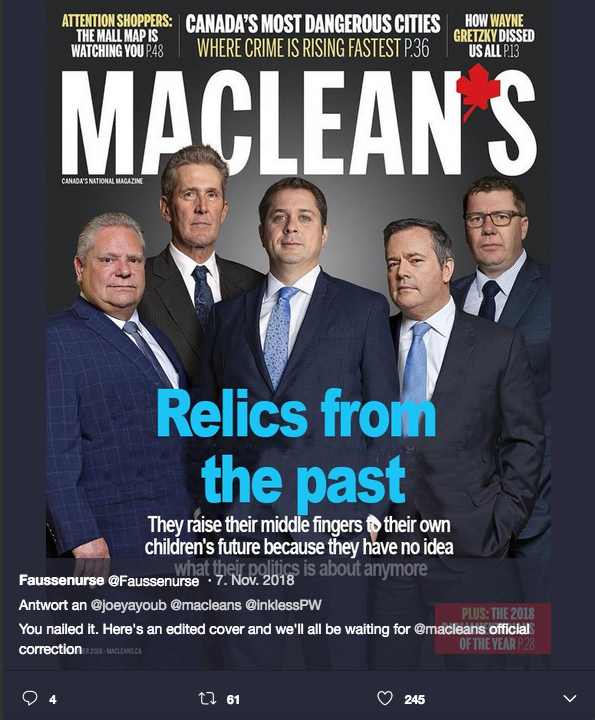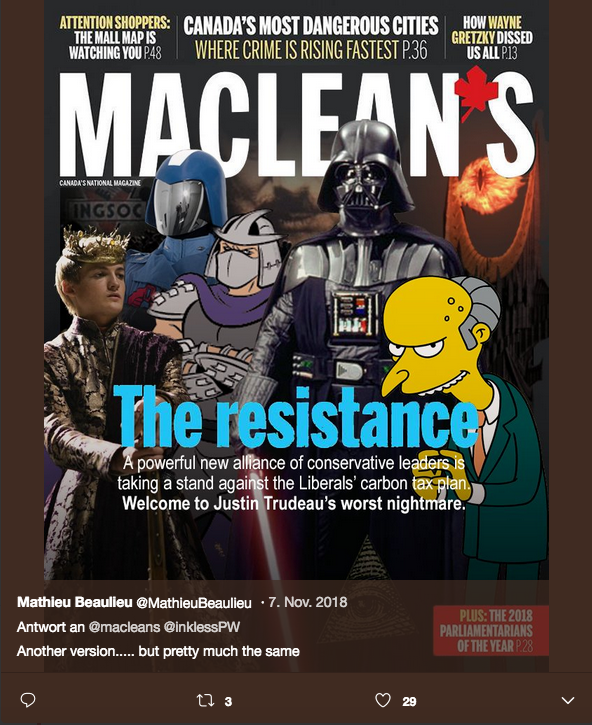While Maclean’s magazine aspires to entertain its readers, it certainly didn’t expect its 7 November 2018 cover to be quite so entertaining. The cover labelled a photo of five Conservative leaders as “The Resistance” – a reference to anti-Trump movement south of the border. The comparison was too funny for Liberals and other partisans who could not rationalize comparing activism in the United States to the efforts of five politicians in Canada against the carbon tax. On social media, users mocked the cover by photoshopping it or recaptioning it as if to double-down on their perception that the cover was absurd. In effect, Maclean’s cover was made meme, becoming a moment of political frenzy, reminding citizens about politics and re-framing discussion of the carbon tax, for a moment.
Memes are referential images shared, modified and, in the case above, politicized online. The Maclean’s Resistance cover suggests that memes are a way of expressing and engaging in partisan politics, in this case allowing Liberals and anti-Conservative voters to constitute what Zizi Papacharissi calls “networked structures of feeling”.
Memes may be political, but we’re not sure how, at least in Canada. There was a rush after the election to overstate meme’s effect in Donald Trump’s election. But as Dr. Whitney Phillips, Dr. Gabriella Coleman and Dr. Jessica Beyer emphasize the popularity of memes about Trump and Trump himself “cannot and should not be tethered to online communities of the past. It was, instead, symptomatic of much deeper, much more immediate cultural malaise.”
Our project then looks to memes as a reflection of this deeper story of Canadian culture, looking to the popularity of memes to understand how partisans and publics relate to politicians and parties. There is little research about memes in Canadian politics (the notable exception being the work of Mireille Lalancette). We believe that through memes partisans and political spectators form and sustain feelings and attachments to parties and leaders.
Memes also defy current approaches to political communication and election studies. We are just beginning to understand how the short, visual, often humorous messages alter the popularity of political issues and the nature of partisanship.

Our project provides a first major study of memes in elections in Canada, experimenting with large-scale computational methods in cooperation with established methods of political communication to understand the encoding of politics and partisanship through memes.
Over the next few weeks into the election, our project will be covering memes and visual internet culture in the Canadian election. Reports will:
- Help describe the most popular and most frequently shared memes during the Canadian federal election and analyze their political significance;
- Discuss how partisans differ in how they produce, modify and share memes in Canada; and,
- Map how memes circulate online.
We will need your help too.
At the end of the project, we will collect our analysis to create The Great Canadian Encyclopedia of Political Memes. Modeled after Know Your Meme, we will collect significant memes and tell their stories. After the election, we will be sharing how you too can participate in writing an entry.
The project is led by Dr. McKelvey (Concordia University) and Dr. Blackburn (Binghamton University) working with a team of students in the Communication Studies at Concordia University.




